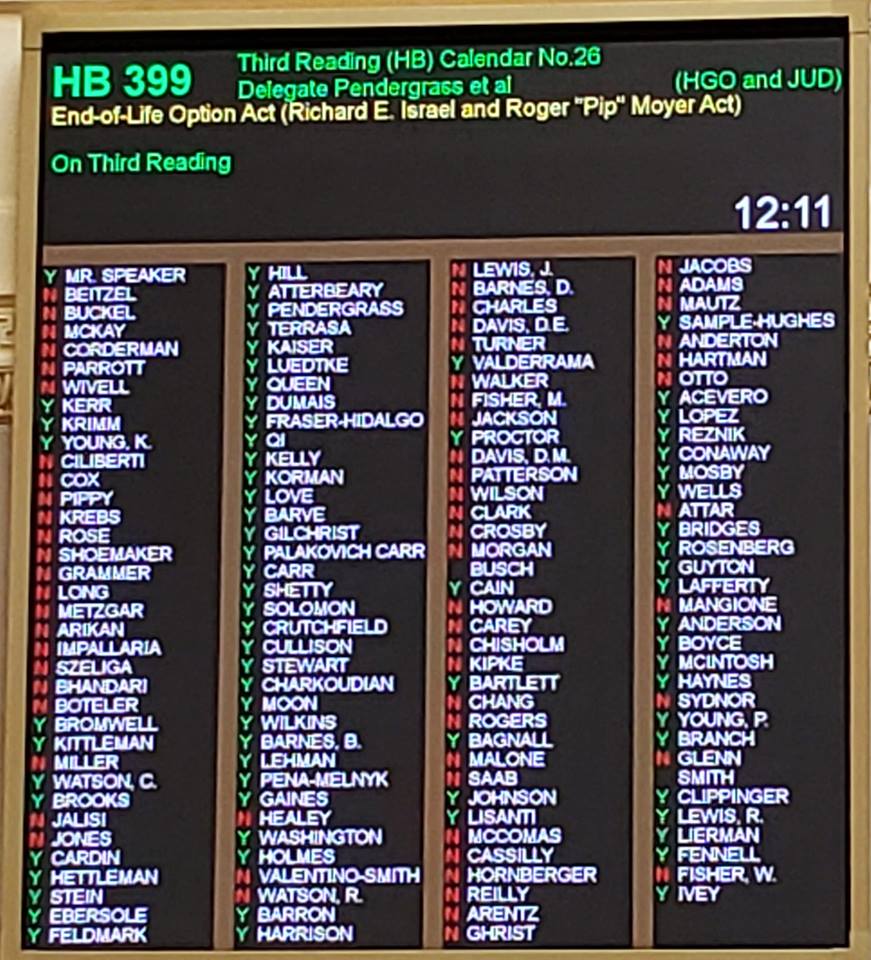By Dan Menefee
For MarylandReporter.com
The Maryland House of Delegates on Friday adopted its version and a Senate version of the Maryland Health Insurance Coverage Protection Act to plan for the potential loss of $4 billion in annual Medicare and Medicaid dollars that flow to the state annually, should the Republican-controlled Congress succeed in repealing the Affordable Care Act.
The loss of funding could result in 400,000 Marylanders losing their health coverage, according to analysis from the Maryland Department of Legislative Services released in January to assess the impact of repeal.
But during floor debate on Friday morning, Warren Miller, R-Howard, asked if the measure could be delayed pending the outcome of a scheduled 3:30 vote in Congress on the American Health Care Act, the GOP’s replacement to the ACA.
“There is a very good possibility there could be no repeal,” Miller.
Miller’s comments were correct and several hours later U.S. House Speaker Paul Ryan announced there would be no vote and conceded that the AHCA failed to win the support of GOP majority.
“Obamacare is the law of the land and will remain the law of the land until it is replaced,” Ryan said at an afternoon press conference announcing his decision to cancel a vote on his plan. “We’re going to be living with Obamacare for the foreseeable future…I don’t know how long it’s going to take to replace this law.”
Congressman Andy Harris, Maryland’s only Republican in Congress, originally lauded the Ryan plan as a way to reduce costs for patients while increasing the quality of health care, but by Friday Harris pulled his support.
Democratic leaders in Annapolis and Washington fear the GOP Congress will continue attempts at repeal before the end of Trump’s first term.
“Today, tens of millions of Americans can breathe a small sigh of relief as President Trump, Speaker Ryan, and House Republicans failed to eliminate their healthcare coverage—at least for now,” said Rep. Elijah Cummings of Maryland’s 7th District in a statement.
Being prepared
Del. Bonnie Cullison, chair of the health insurance subcommittee, said regardless of what happened Friday the state should prepare for potential changes. She said the state needed to brace for repeal or drastic changes that could result in loss of coverage or a spike in premiums and other costs.
“We need to be prepared and we’re going to have to look at some other ways to deliver [health care] services,” She said.
She said options may be limited to bringing back high-risk pools like the Maryland Health Insurance Plan (MHIP), a public health plan established by the legislature in 2002, the Health Insurance Safety Net Act, to cover individuals who were denied coverage due to pre-existing conditions or who were deemed uninsurable. The program established 41 medical conditions that automatically qualified individuals for enrollment.
Coverage under MHIP was supported by premiums, a 1% assessment of hospital rates and federal grant funds. The plan was phased out in January 2014 when coverage became available under the ACA. Those who could still not afford coverage qualified under the Medicaid expansion if their incomes were 133% of the poverty level or less.
“But we’re not looking favorably on any of our options right now,” Cullison said. ‘We’re going to have to look at some other ways of delivering the service.”
“There may be very high premiums but it would cover the people who absolutely need health care and don’t have it,” she said. She said it could be a stopgap against medical bankruptcy and would hopefully include a prohibition against lifetime limits on coverage.
“These are out there as options but we are not looking favorably on any of our options right now,” Cullison said.
Minor amendments were adopted on Friday to make the bills identical and final passage is expected this week. The Senate passed its version March 18 in a party-line vote, 33-14.




Recent Comments